
When we assess the career of Christopher Nolan, it’s usually in terms of the sphere of cultural influence he’s had during the past 25 years. From “Memento”, the Dark Knight trilogy and “Inception” to “Interstellar”, the London-born filmmaker has left an indelible mark in every genre he’s worked in while singlehandedly revolutionizing the studio blockbuster. A visionary storyteller with a knack for turning big ideas into even bigger spectacles, a populist entertainer whose name is a major box office draw, a Hollywood trailblazer, a huge advocate for the theatrical experience, and a perfect gateway director for young movie lovers — no matter how you slice it, Christopher Nolan has cemented his place among the very highest stratum of today’s Hollywood filmmakers.
“Oppenheimer”, a hugely anticipated WWII-era biopic starring Cillian Murphy as the titular physicist and the father of the atomic bomb, continues to shatter expectations at the box office and generate Oscar buzz. While Nolan’s formative experiences growing up are well-noted — “Star Wars”, “2001”, “Lawrence of Arabia”, to name just a few — he’s cribbed from a fairly eclectic range of films throughout his career. To celebrate the occasion, we have rounded up a collection of nail-biting titles that have played a part in influencing his work and are worthy of your time.
1. The Offence (1973)
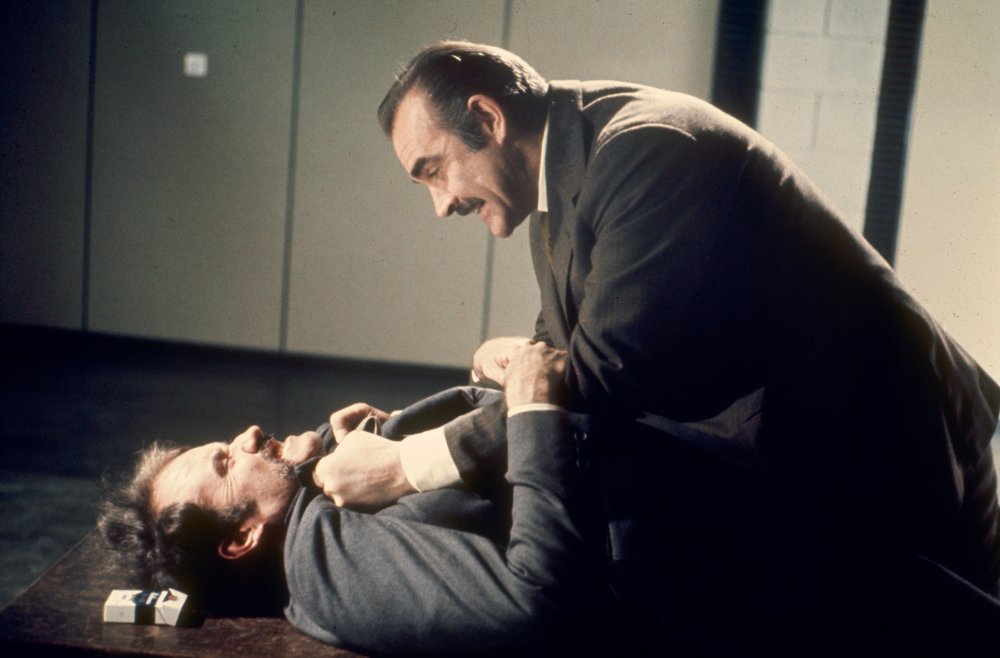
Nolan had a chance to stop by the famed French video store Konbini while he was in Paris on Oppenheimer’s promo tour to pick out a selection of films that celebrate his taste and style as a filmmaker. One of the lesser-known films the British director pulled out from the shelves was this stage adaptation by Sidney Lumet, a title in Sean Connery’s catalog still not nearly as appreciated as it deserves to be that happens to feature what Nolan considers the Scottish actor’s finest performance.
“There’s a level of craft from Sean Connery in this movie you wouldn’t see anywhere else”, explains Nolan. “It’s incredible”. A clear inspiration for the iconic interrogation scene between Batman and the Joker featured in the second installment in Nolan’s Dark Knight trilogy, this thorny morality play stars Connery as a grizzled, burned-out cop investigating a series of sex attacks on underage girls who reaches a breaking point while interrogating a suspected child molester. Though he cultivated a reputation for playing unflappable, charismatic gentlemen, Connery’s turn as an emotionally wounded man who can never wash the blood off his hands proves just how versatile the former 007 agent was as a dramatic actor when he didn’t embrace type.
2. Sorcerer (1977)
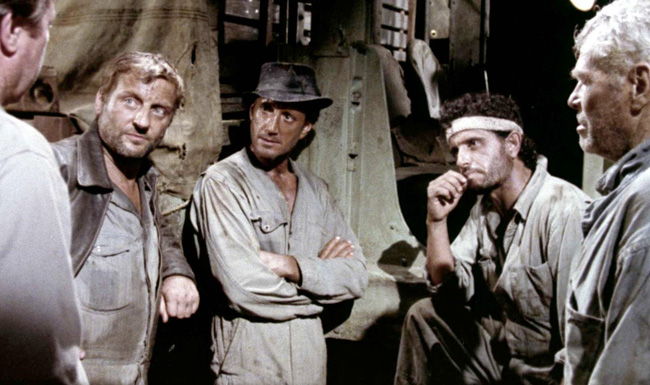
As the records have it, this high-octane jungle thriller will officially go down as a big-time box office flop, having the bad fortune of debuting exactly one month after George Lucas’ space opera ripped open the entire film industry. That being said, the stock of this English-language remake of the 1953 masterpiece “The Wages of Fear” — a film that laid the groundwork for “Dunkirk” — has only risen over the years, gradually being reassessed by audiences and later reclaimed as a landmark achievement for the New Hollywood wave that stands out in William Friedkin’s rich filmography.
A masterclass in slow-burning tension, “Sorcerer” centers around four fugitive criminals who agree to risk their lives transporting gallons of explosive cargo in trucks from a remote South American town all across the treacherous Venezuelan jungle. Nolan singled out the 1977 testosterone-fueled nail-biter for praise during his recent visit to Konbini’s video store, highlighting the remarkable scenes involving Roy Scheider’s truck on the bridge and Tangerine Dream’s synthy score, the latter of which he considers one of the most influential soundtracks of that time period.
3. JFK (1991)
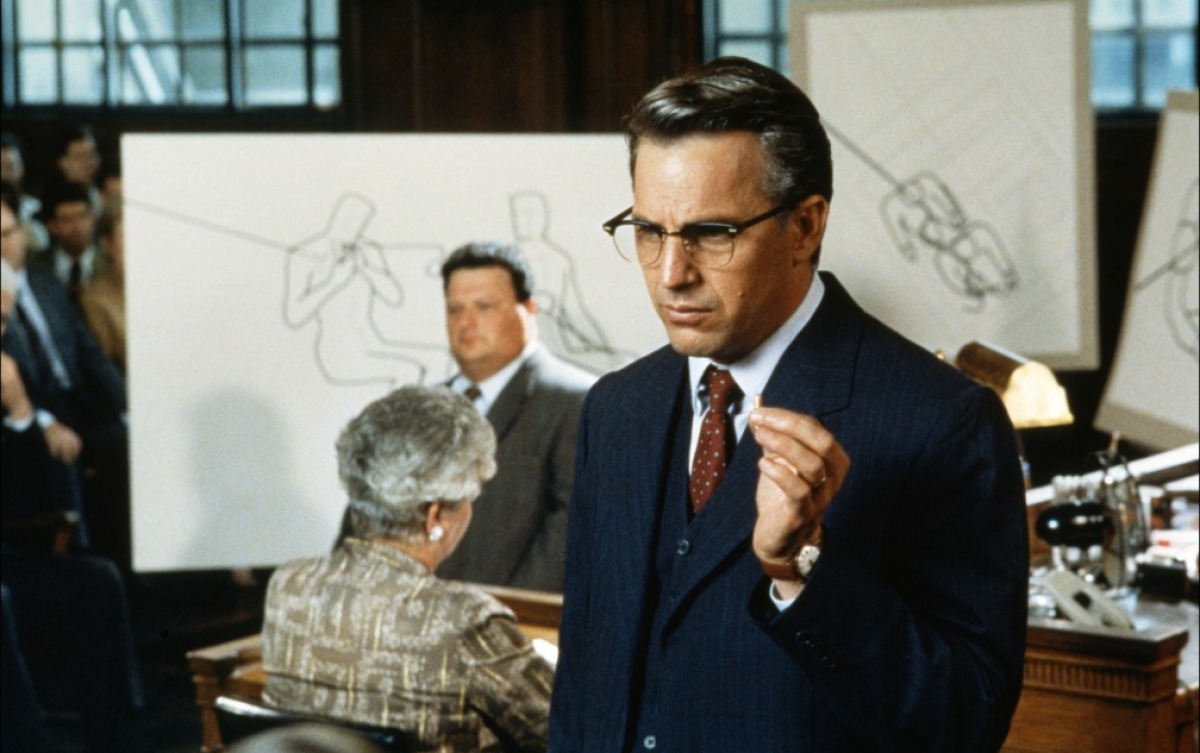
As yet another talky, three-hour biopic littered with Hollywood A-listers that details a key chapter in modern American history, Oliver Stone’s 1991 courtroom drama feels strikingly analogous to Nolan’s latest. As it turns out, the London-born director commented that rewatching this dramatized account of the investigation into the assassination of President John F. Kennedy in preparation for “Oppenheimer” was an incredibly powerful experience, revealing that the effectiveness in which the movie builds and sustains suspense strictly through dialogue informed his approach to his own historical epic.
“Nowadays, we tend to think that it’s not possible for moviegoers to think and be entertained at the same time, but I really believe that cinema can return to what the Hollywood DNA must be — modern, innovative, and thought-provoking,” Nolan recently told Paris Match. ‘“JFK” is one of the last great examples of the same type of engaging, disturbing and epic movie that Hollywood has forgotten the last couple of years.” Most of the facts and conjectures posed by Stone’s opus may have been proven wildly inaccurate thirty-two years on from its initial release, but its passionate cross-section of systemic corruption and the pursuit of truth has lost none of its capacity to provoke.
4. Insomnia (1997)
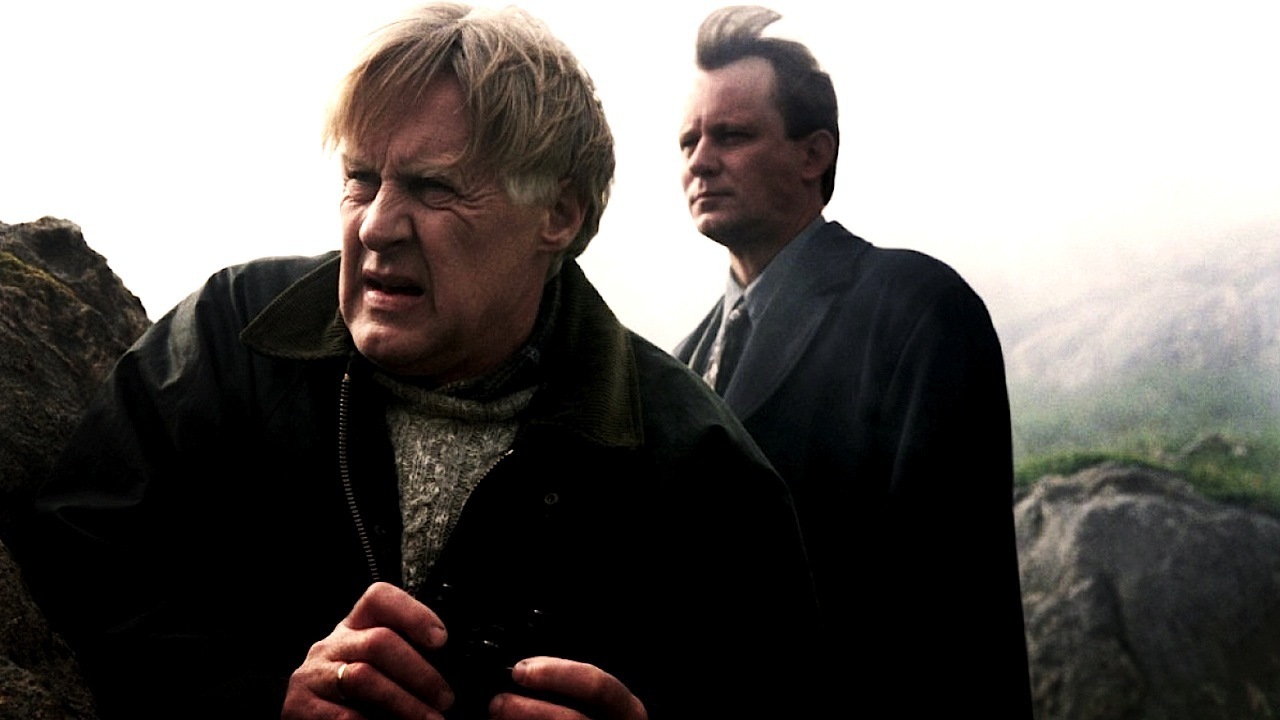
Christopher Nolan has become so synonymous with big, glossy spectacles, huge ensemble casts and high-concept narratives that it’s impossible to imagine Hollywood’s blockbuster mainstream cinema without his blueprint. Long before his budgets started to figure into the triple digits, the Brit director took his first major steps into studio filmmaking adapting this ice-cool Norwegian crime caper, which stars Stellan Skarsgård as a sleep-deprived murder investigator driven by desperation and guilt who tries to keep his sanity while tracking down a fugitive serial killer.
Nolan told The Guardian that when he first saw the original 1997 movie, he thought it was absolutely brilliant and unimprovable. He confessed that in helming the English-language remake, he wasn’t really looking to best the original, but render difficult moral dilemmas and further explore the gray moral areas where the lead cop is torn between pragmatism and idealism. Though Nolan’s 2002 rendition is nothing to scoff at, it’s Erik Skjoldbjærg’s original film that remains essential viewing for fans of gripping and brilliantly cynical whodunits.
5. The Hit (1984)
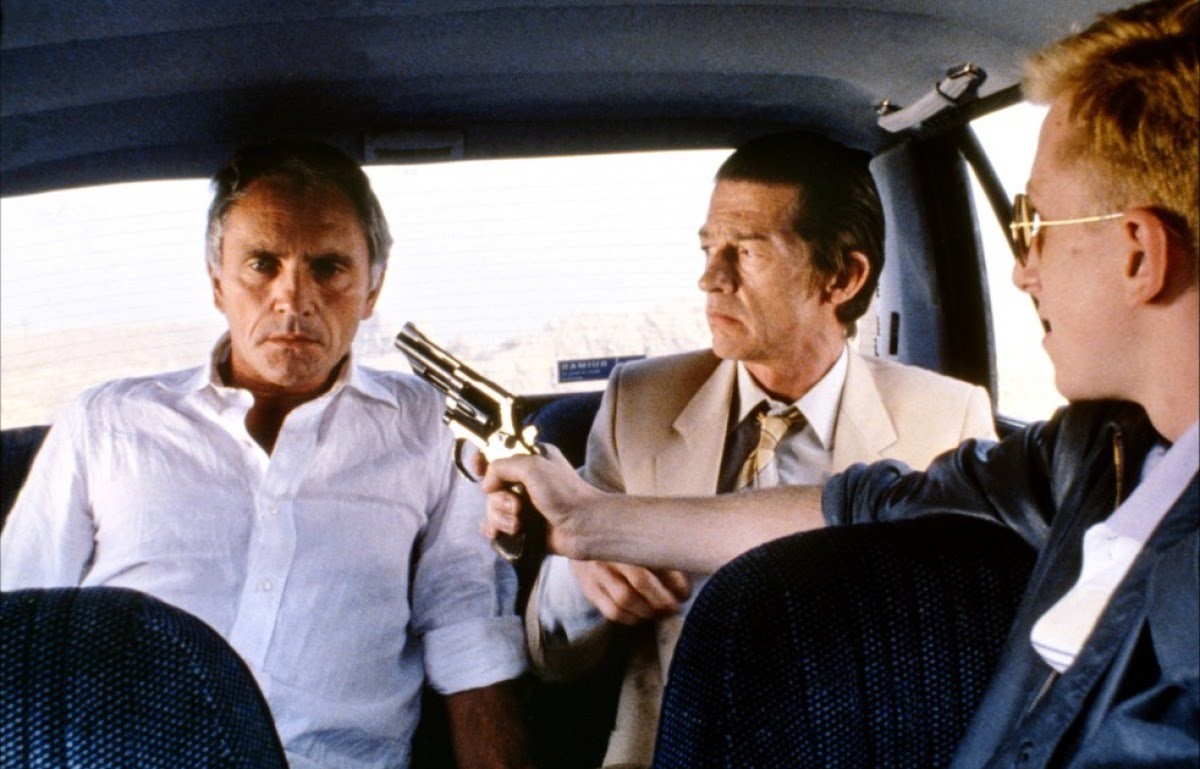
Ambiguity is the name of the game in most if not all of Christopher Nolan’s movies to date as well as Stephen Frears’ grisly Brit thriller, featuring a gruff Terrence Stamp as a former henchman turned stool pigeon who desperately tries to stay one step ahead after ratting on his mob friends and lying low in a remote Spanish village. Before long, two hit men (John Hurt and Tim Roth) come knocking at his door en route to Paris where he’s expected to meet retribution from the crime boss he helped put away.
Listed as one of his ten favorite titles in the Criterion Collection, “The Hit” has been revered by Nolan and referred to as a daring portrayal of the dynamics between desperate men. “Revenge is a particularly interesting concept, especially the notion of whether or not it exists outside of just an abstract idea,” he said. “That Criterion has released this little-known Stephen Frears gem is a testament to the thoroughness of their search for obscure masterworks.” Even by modern standards, the unbearable tension, powerful cast, and music by Roger Waters and Eric Clapton ensure this tightly constructed Euro-thriller still packs a punch.